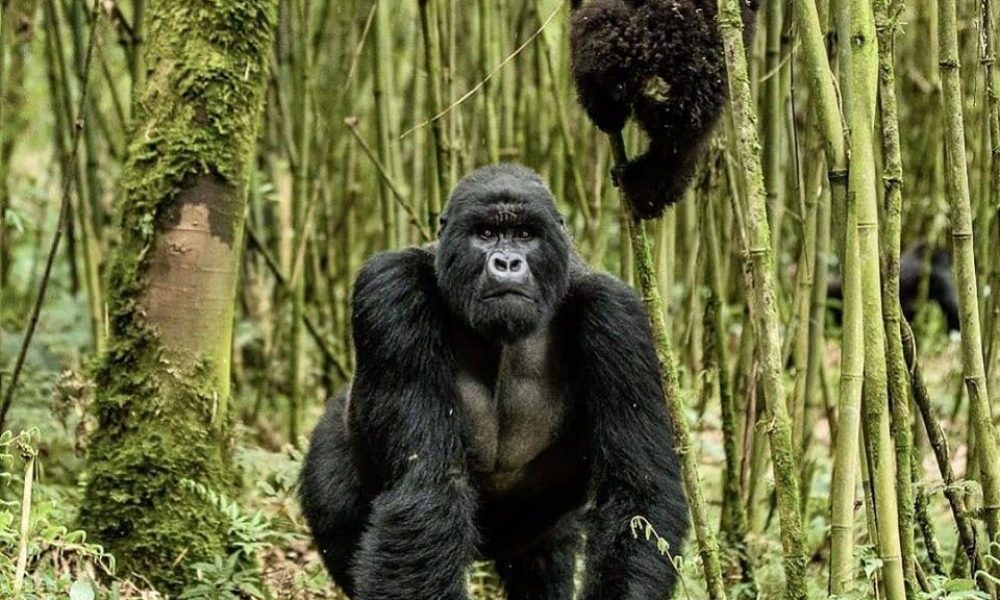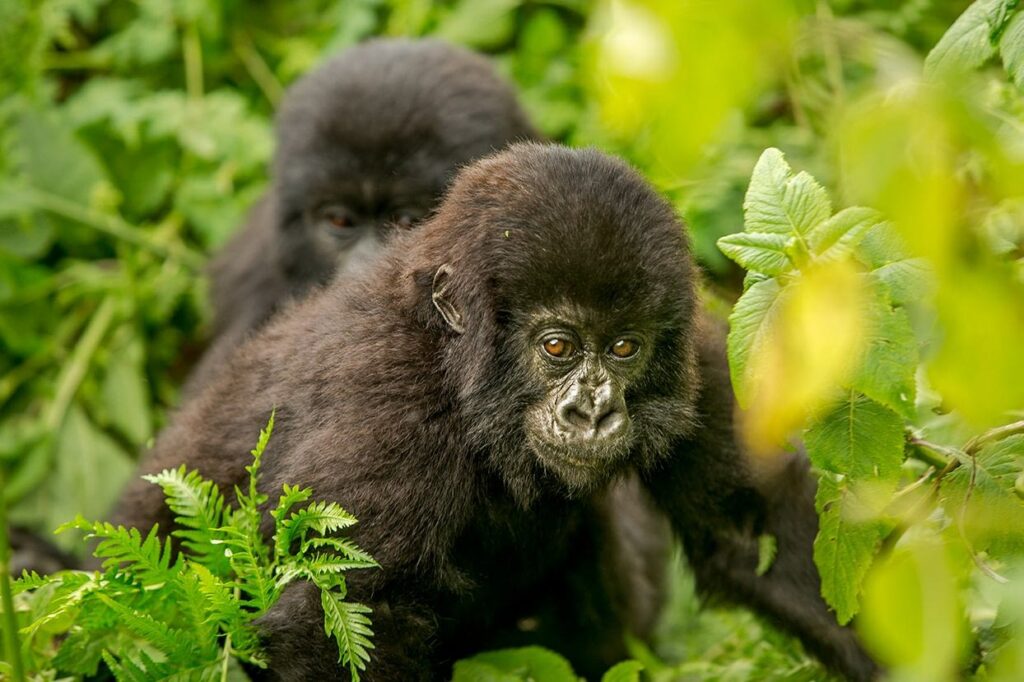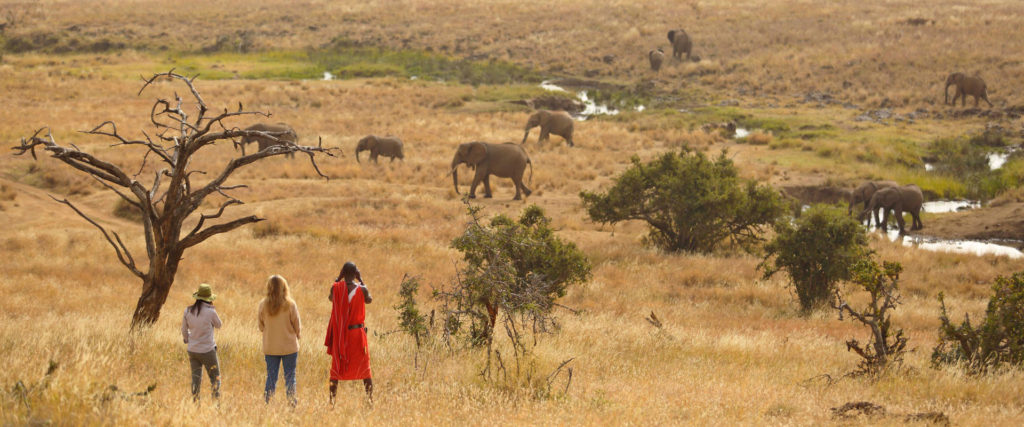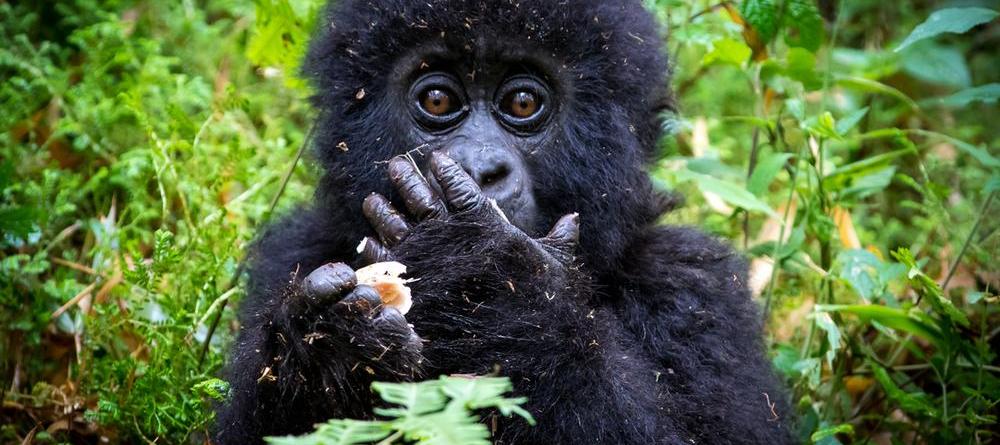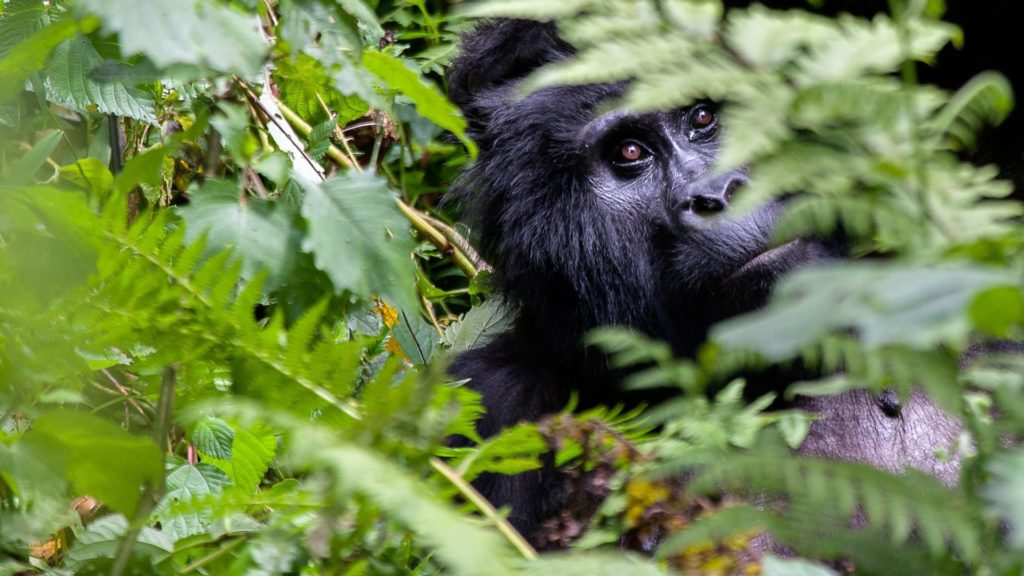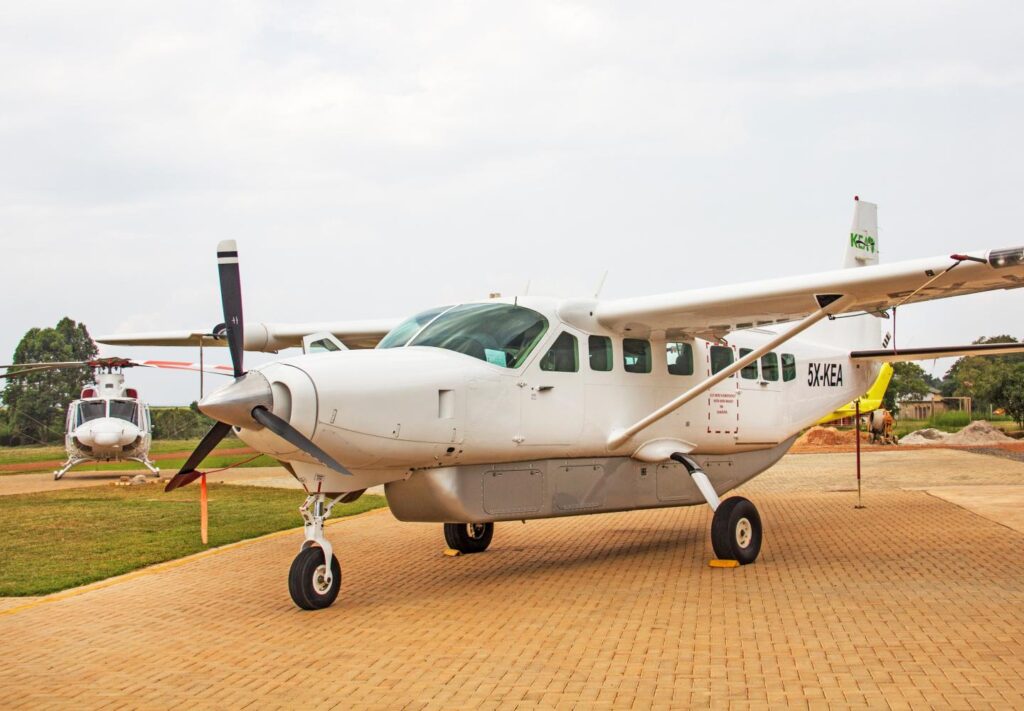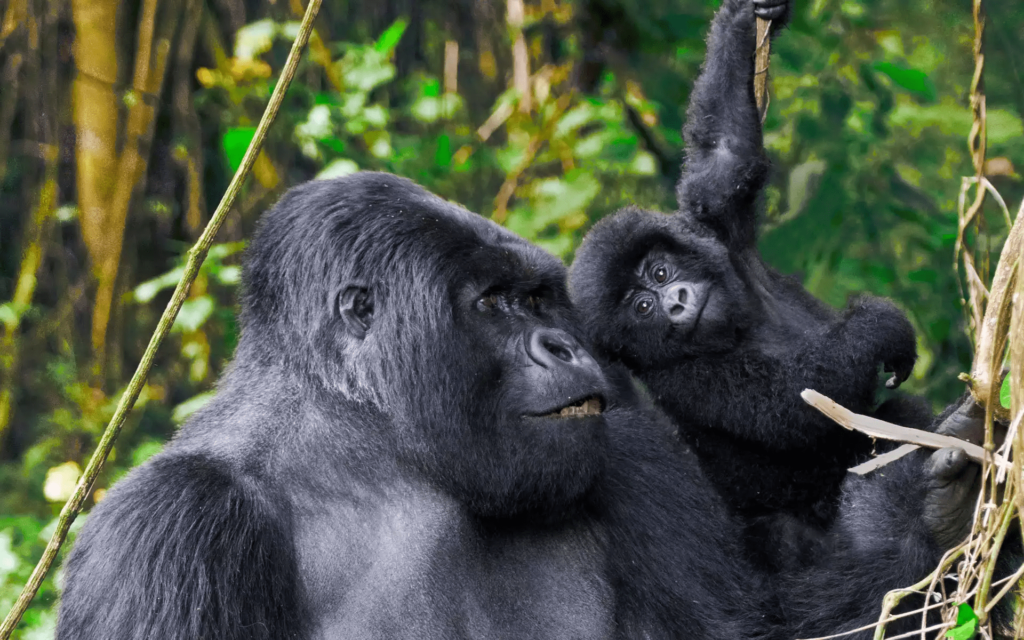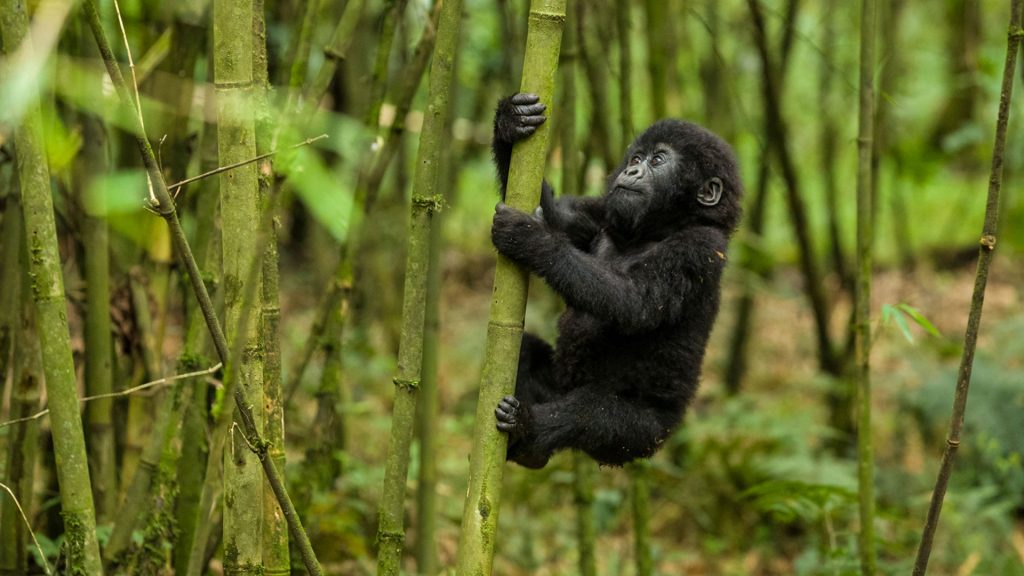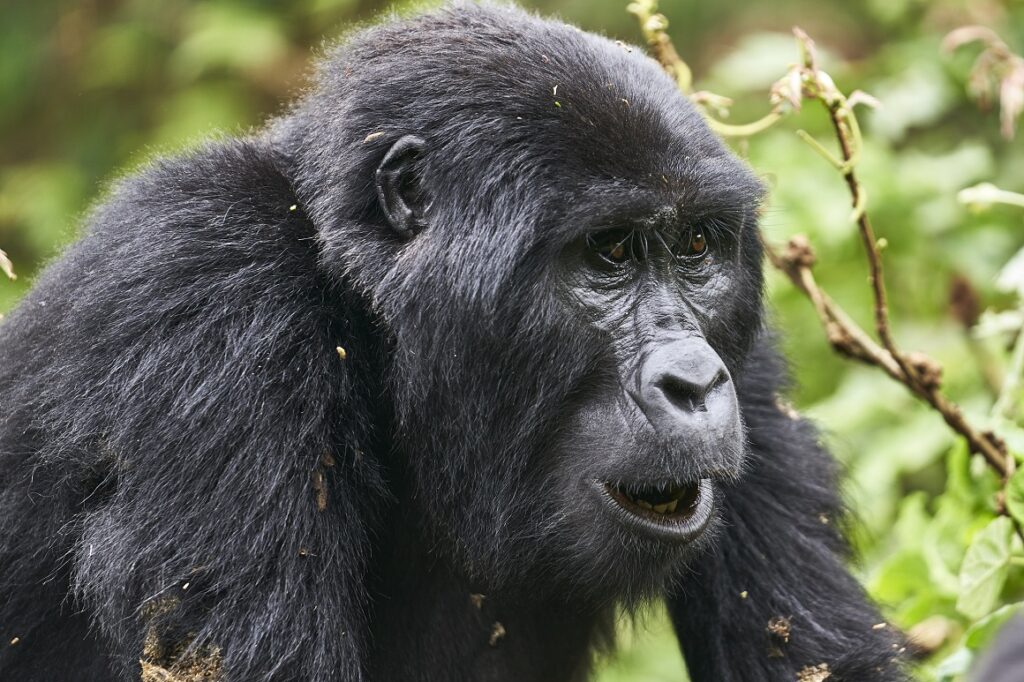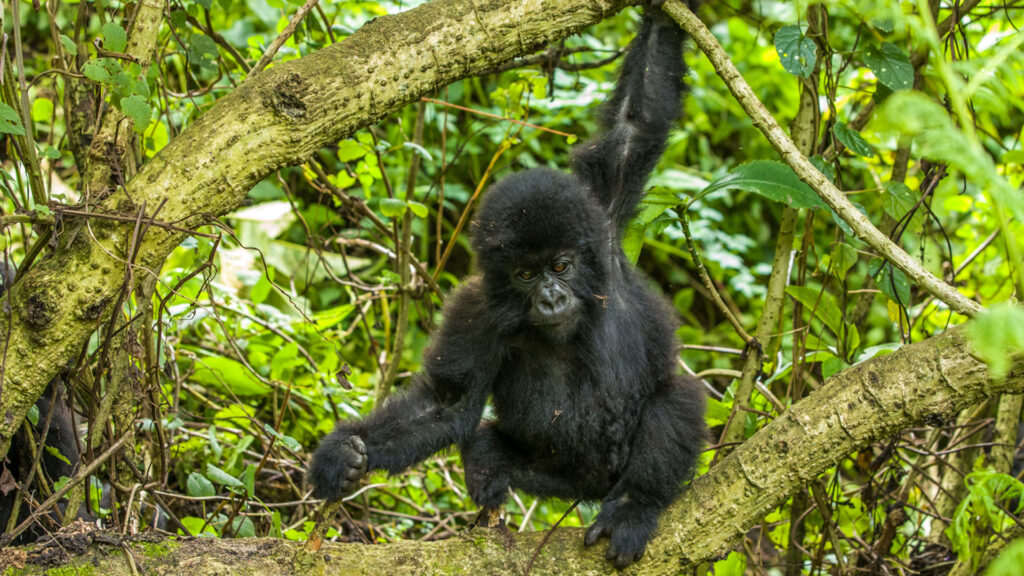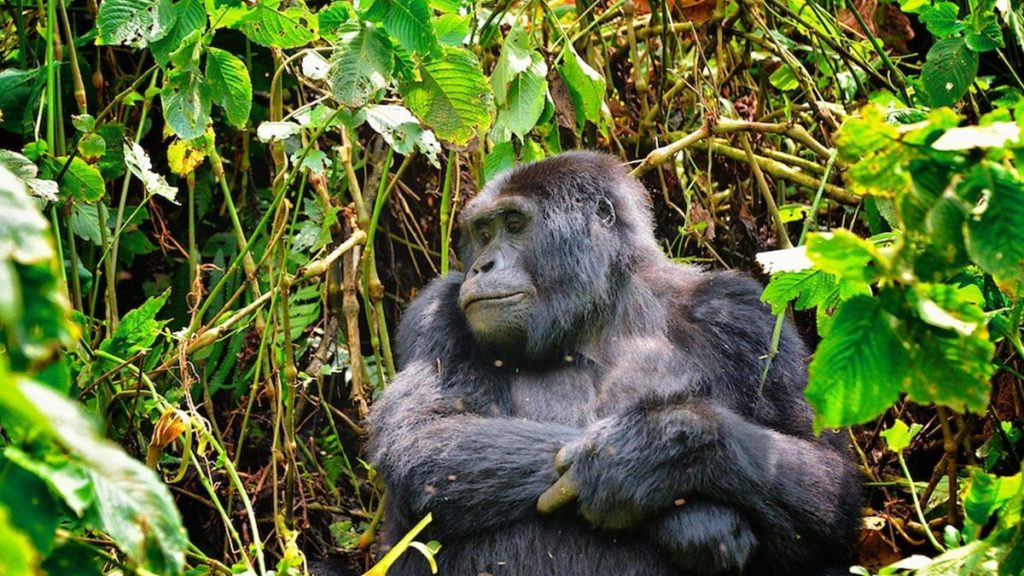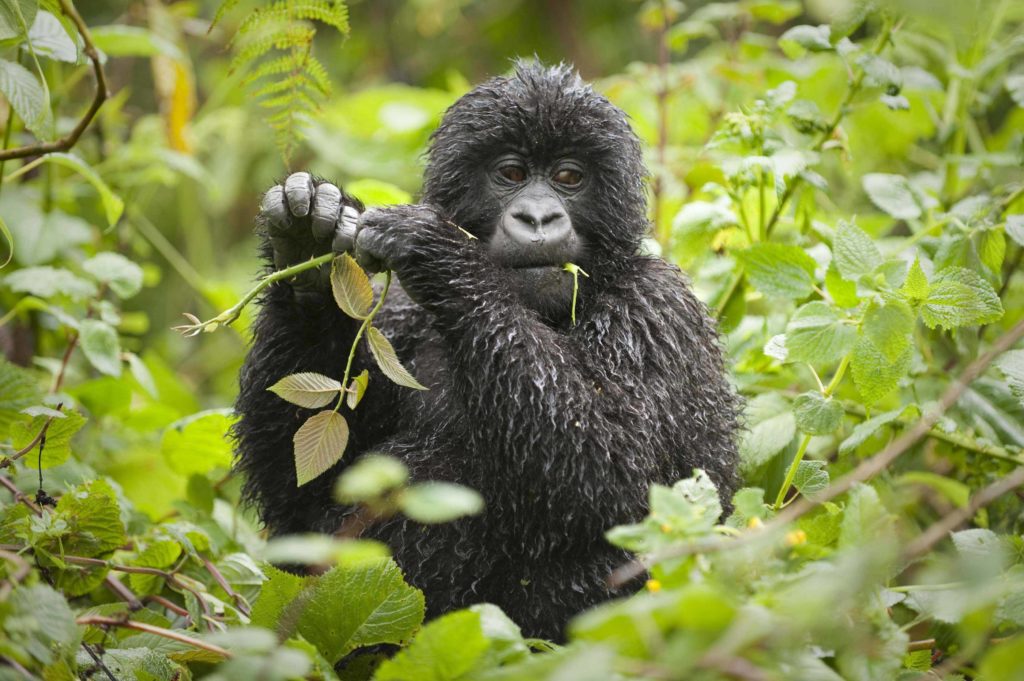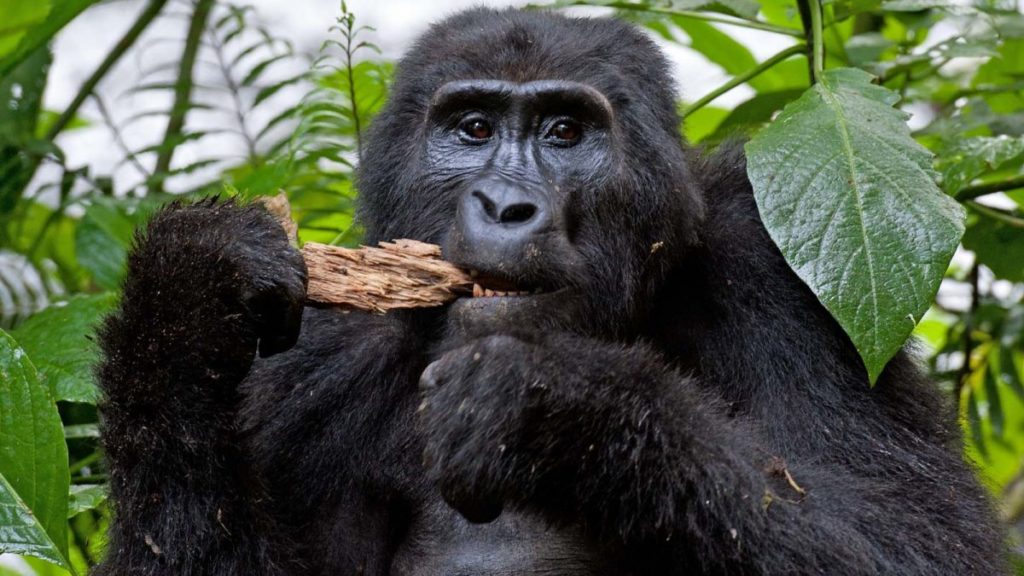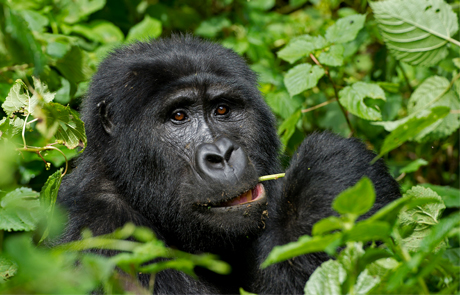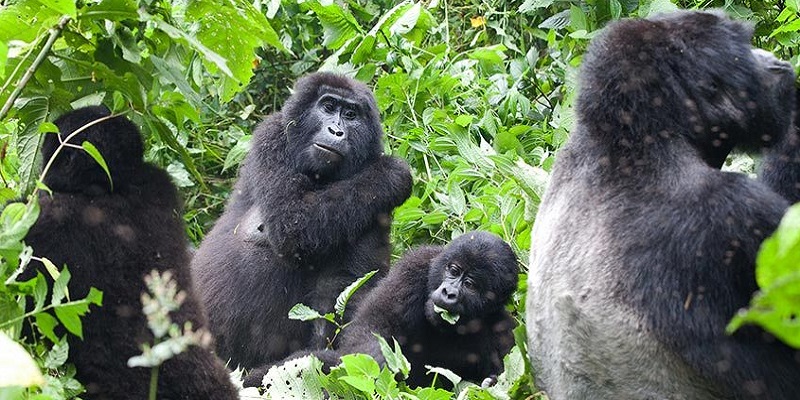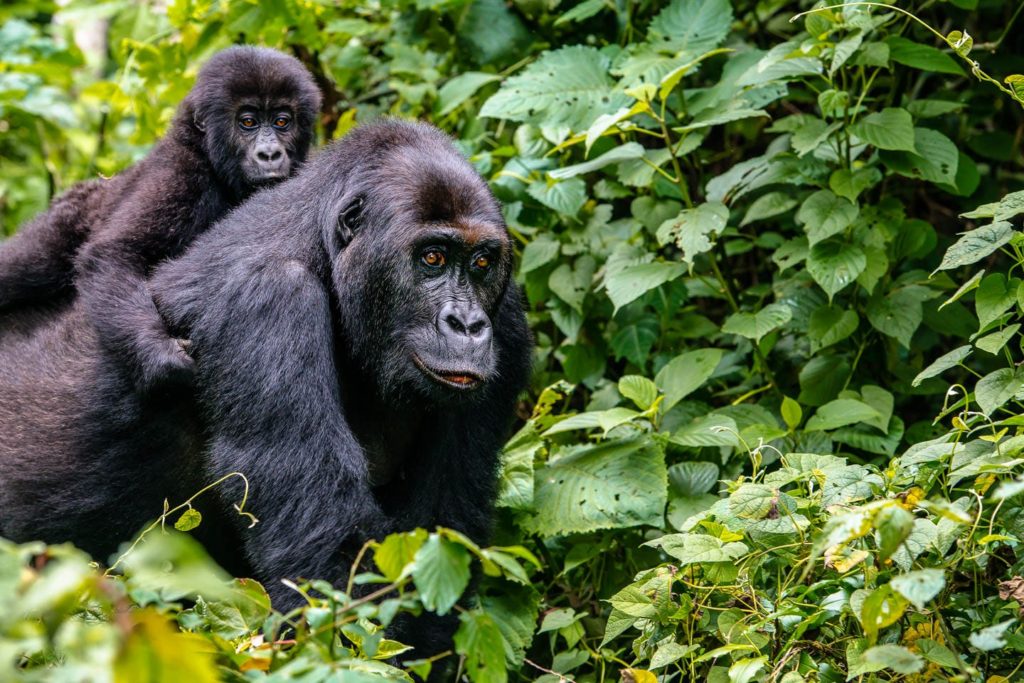Post-lockdown gorilla trekking regulations have been set by all three (03) Gorilla trekking destinations; Uganda, Rwanda & DR Congo as a measure to further protect the rare mountain gorillas from contracting the deadly COVID-19.
Before & On arrival into Uganda/Rwanda:
- All travellers intending to fly into Uganda or Rwanda for gorilla trekking and or other tourism-related activities must have undergone a mandatory 72-hours COVID-19 test in the country of origin prior to their travel to Uganda or Rwanda.
- On arrival, another test or tests (as may be determined by the Rwandan authority) will be conducted just so they are sure you are not Positive for COVID-19.
- Should you be found positive for COVID-19 on arrival into Uganda or Rwanda, you will be sent to the nearest allocated treatment/management centre.
- If found negative, you will be allowed to proceed with your travel arrangement with Realm Africa Safaris™. We will have someone waiting to receive you after meeting all set government requirements.
- If you are feeling ill, or you are carrying a contagious disease, kindly volunteer to stay behind for the good of the Gorillas & your fellow trekkers. Depending on your illness, an alternate gorilla trekking opportunity may be arranged for you, or you might be refunded the cost of your gorilla permit. (See: UWA refund procedures for ill persons)
During your journey to the Gorillas:
- Only 08 tourists will be permitted to trek & photograph a group of habituated Mountain gorillas. This minimizes behavioural disturbance to the gorillas and also minimize the risk of them being exposed to human disease(s).** Rwanda has reduced the number to 06 tourists with the aim of minimising any possibilities of passing on the deadly COVID-19 virus ( See: Can gorillas catch COVID-19?)
- Always endeavour wash or use an alcohol-based hand Sanitizer to thoroughly clean your hands before trekking the gorillas. (See: The Best Hand sanitizer for a Safari to Africa).
- You will be required at all time (in public) to wear a mask. N95 masks are scientifically recommended as the safest masks. please bring one/a couple for yourself. ( You can buy one on Amazon.com)
- You will be required to observe a social distance of about 2 metres during your trek, and when viewing & photographing the gorillas.
- When you get to the gorillas, kindly observe the recommended safe gorilla trekking distance of 7 metres as stipulated in the Post-lockdown gorilla trekking regulations. **Rwanda has increased this distance to 10 metres as a measure to limit the spread of COVID-19.
Popular Post-lockdown Gorilla Trekking Safaris in Uganda
Post-lockdown Gorilla Safaris in Rwanda
Additional information worth reading before you go Gorilla Trekking
What is gorilla trekking?
Gorilla trekking is a fully active adventure experience that involves hiking up uneven terrain, mountains and through tangled vegetation cover hacked by rangers and porters using machetes to create a temporary passage to the gorillas. The type of gorillas you are trekking to see is the rare mountain gorillas.
Where to do gorilla trekking?
Mountain Gorilla tracking in Africa can only be done in three (03) countries; Uganda, Rwanda and DR Congo. Uganda and Rwanda are considered the Safest Places to see Mountain Gorillas. DR Congo, unfortunately, suffers ongoing political unrest which makes it unsafe to visit at the moment. (see: Why DR. Congo is considered unsafe for Gorilla tracking)
In Uganda, Gorillas can be seen in two (02) National Parks; Bwindi Forest National Park and Mgahinga Gorilla National Park.
In Rwanda, Gorilla trekking is done in Volcanoes National park and nowhere else.
Price Of a gorilla Permit.
Gorilla Permits in Uganda cost USD700 per person to trek in either Bwindi or Mgahinga National Parks
In Rwanda, Gorilla permits cost USD1,500 per person to trek gorillas in Volcanoes National Park.
**Both permit fees mentioned include; park entry fees, 0ne (01) gorilla trekking permit and guide fees.
Best time to go gorilla tracking.
Although Gorilla tracking can happen anytime all-year-round come rain or sunshine, the best time to go gorilla tracking is in the dry season months of June to August and December to February. During this time, the trails and drier and less slippery. Trekkers are likely to enjoy a fairly drier gorilla trekking experience and good weather for photography.
What to expect during gorilla trekking.
You morning on the day of the trek starts with you getting dressed up in the appropriate gorilla trekking gear and outfit (see: Gorilla trekking Clothing & Gear). You will then be transferred by your guide to the respective gorilla briefing point where you will be briefed about gorilla trekking, the dos & dont’s ( see: gorilla trekking rules). After the briefing, you will walk into the forest and start your gorilla tracking experience in the company of UWA/ RDB rangers who will interpret the plants, birds, insects and anything of interest in the forest. On finding the gorillas, you will be allowed a maximum viewing and photography time frame of one (01) hour. Return to your start point for a certificate awarding ceremony. The certificates are souvenirs for you to take back at the end of your gorilla Safari.
What to wear/bring on your Gorilla trek.
What to wear on my gorilla trek.
- Sturdy Lightweight walking shoes. the lighter the better. Extra weight on the trek is not good.
- Long-sleeved shirt and trousers to provide extra body protections against thorny shrubs.
- Long socks that allow you tuck you pants in to avoid bugs from climbing into your pants while on the trek.
- Rain jacket in case it rains. Remember you are trekking in a tropical rain forest.
- Gaiters (Optional). Don’t spend On new ones. These can well be substituted with long socks to serve the same purpose.
What to bring on your trek.
- A camera for your photographic needs. Don’t spend BIG on a camera. if you own an iPhone, they too take amazing pictures especial under limited forest light.
- Binoculars (optional). They might come in handy when spotting some forest birds. Your ranger guide will have a pair that he is willing to share.
- A hat (optional). This is to keep branches and leaves let alone bugs from falling into your hair.
- Drinking water. Realm Africa Safaris™ will provide adequate bottled drinking water for the entire trip.
- Packed Lunch. Realm Africa Safaris™ will take care of this. All our trips include meals unless agreed otherwise
- A Day Pack to carry all your personal items while on the trek. ** We recommend using a porter to carry your day pack for you (see: why use a porter for Gorilla trekking)

